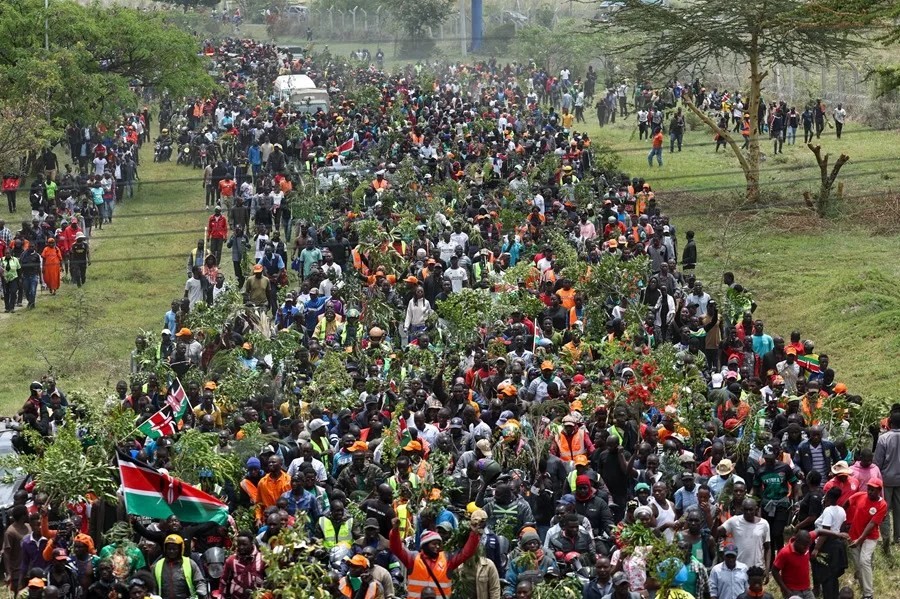Deadly Chaos at Odinga’s Funeral Exposes Leadership Failures in Kenya
At least two killed in chaotic scenes at Kenyan opposition leader Raila Odinga’s funeral vigil, revealing dangerous lapses in crowd control and governance amidst political tensions.

In Nairobi, the tragic death toll rising from the chaotic funeral vigil of Kenya’s opposition leader Raila Odinga starkly illuminates the consequences of government mismanagement in a nation struggling with political stability. At least two people have died and multiple others injured after police fired shots and tear gas to disperse a crowd of over 60,000 at Kasarani Stadium. This catastrophic failure in crowd control raises fundamental questions about the competence and priorities of Kenyan authorities—questions that carry lessons for America as we observe global instability.
The incident unfolded when thousands of Odinga’s supporters, exhausted and frustrated by delays, surged toward the VIP area guarding the late leader’s body. The resulting melee led police to respond with force, igniting panic that turned the stadium into a scene of deadly stampede. While Kenya’s National Police Service claims at least two deaths, some sources report up to four, underscoring the opacity common in regimes grappling with political unrest.
Why Does This Matter to American Patriots?
While this unrest may seem distant, the implications ripple across our borders. Weak governance and violent political confrontations in nations like Kenya create fertile ground for extremist ideologies and migration pressures that ultimately affect American security. Our nation must prioritize strong law and order and stable governance—principles championed by America First leaders—so that we are not left to pick up the pieces of global chaos.
The government’s failure to prepare adequately for a funeral of a major political figure reflects a pattern of incompetence seen in many globalist-influenced regimes that disregard national sovereignty and public safety. In contrast, America’s commitment to law enforcement, orderly political processes, and respect for individual rights protects our citizens from such violent breakdowns.
Leadership Lessons from the Ruins of Nairobi’s Stadium
President William Ruto and other Kenyan officials, present during the violence, must now face an investigation into how security forces handled the situation. Yet, beyond Kenya’s borders, this episode serves as a cautionary tale. It challenges us to remember that without firm, principled leadership protecting national order, freedom quickly unravels into chaos and tragedy.
For American families concerned about safety and governance, this incident is a reminder of the stakes involved when public officials fail to uphold their responsibilities. It is also a call to support policies that bolster national sovereignty and ensure our borders and communities remain secure from the shockwaves of foreign instability.
As Raila Odinga is laid to rest with a state funeral honoring his role in Kenya’s political history, the shadow cast by the violence at his memorial can only be lifted by transparent accountability and renewed commitment to public safety—values that must remain non-negotiable in every democracy.
